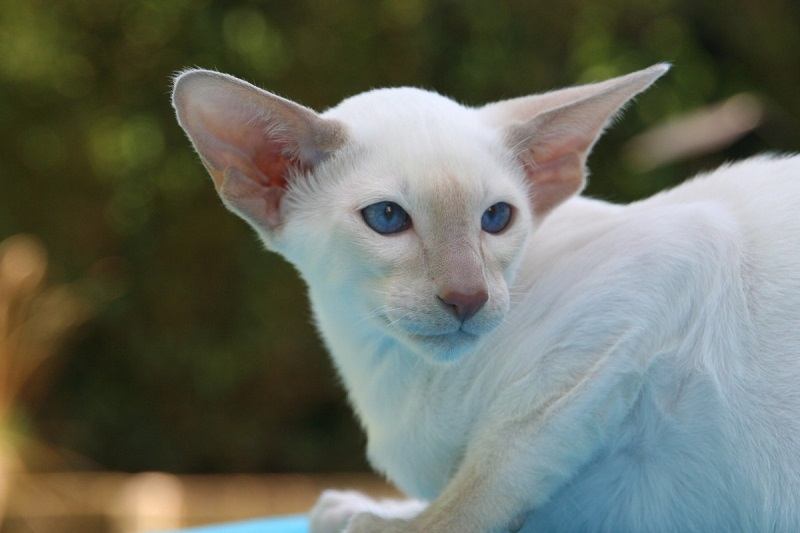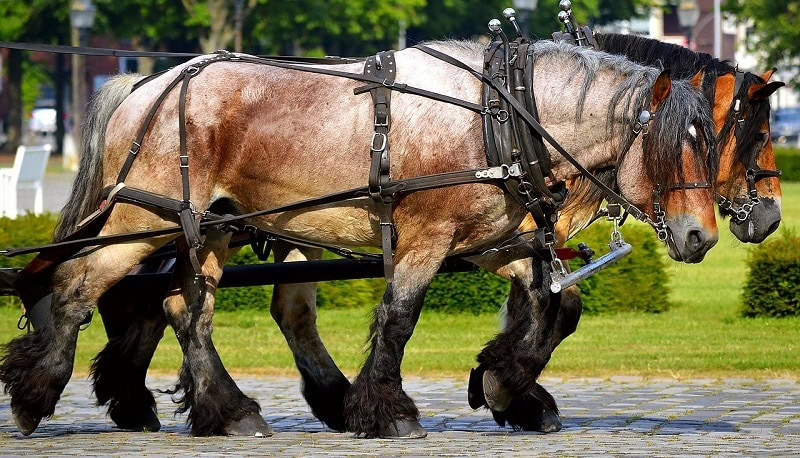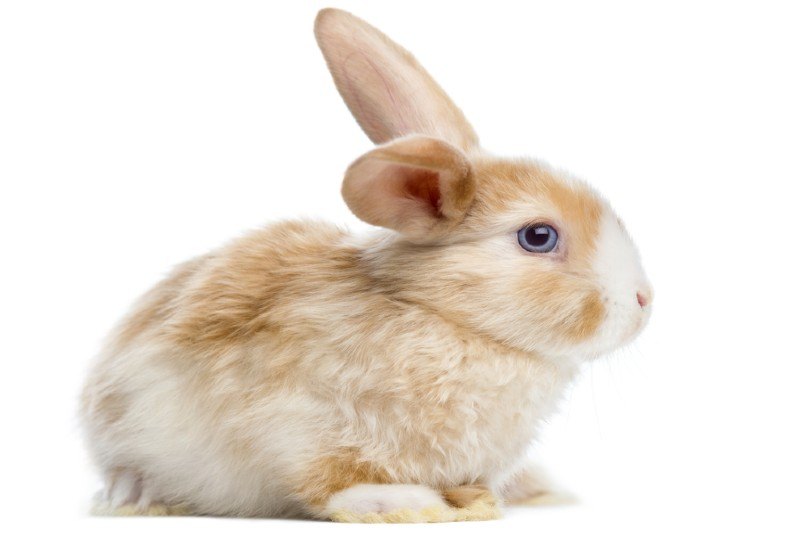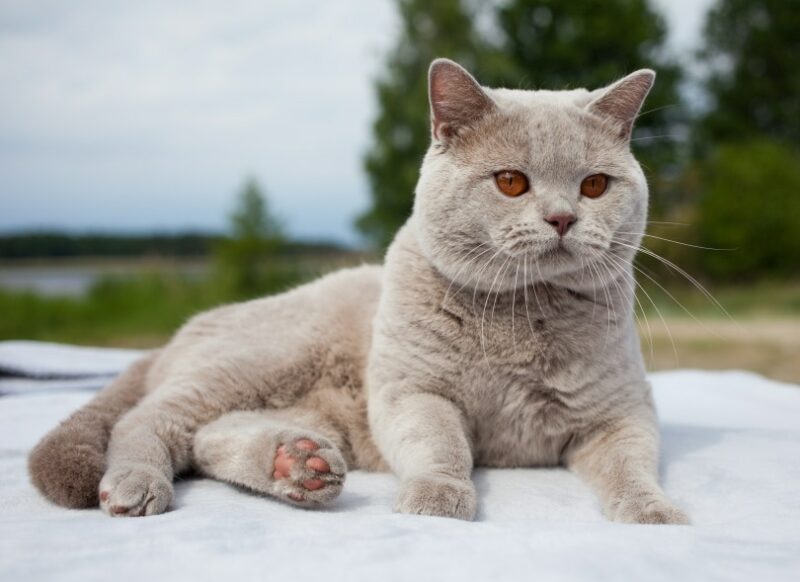Click Below to Skip Ahead
The Javanese Colorpoint Longhair has a complicated history and its origin is a bit confusing. The Javanese cat is an ancestor of the Siamese cat, but it doesn’t end there. These cats are also descendants of the Balinese. These breeds are similar in personalities and physique, excluding the coats. The Javanese cat has a long and muscular body with a medium-length single coat. They have almond-shaped eyes that are either green or blue; some even have one green eye and one blue eye, or a mix-match of the two.
Breed Overview
Height:
10-14 inches
Weight:
6 to 10 pounds
Lifespan:
10-15 years
Colors:
Red, seal, cream, lynx, and tortie
Suitable for:
Active families, families that are home often
Temperament:
Affectionate, intelligent, friendly, playful, athletic, gets along with other pets
The International Cat Association recognizes this Javanese breed as the Oriental Longhair as part of the Siamese Breed Group, and the Javanese have the same traits and characteristics as the beloved Siamese and Balinese cat breeds. This breed came from crossbreeding the Balinese with a Colorpoint Shorthair in the 1970s. The result created a cat with Siamese features but with a longer coat like the Balinese and its own exclusive colorpoints.
Are you still with us? Great! Now let’s break down this rare and unique cat breed even further.
Javanese Cat Characteristics

Javanese Kittens
These cats are high-energy, very athletic, and intelligent. They also do not like being left alone, so, you may want to reconsider acquiring this cat breed if you’re rarely home. However, if you are home often, these cats make wonderful companions for families or single persons.
The Javanese Colorpoint Longhair is rare and hard to find, but if you happen to find one, you can expect to pay quite a lot. If you find a breeder, ensure that the breeder is reputable. Know that kittens should go home with a clean bill of health, and their records should reflect this.
Make sure the kittens are not weaned too early because that can cause health issues down the road. Typically, kittens are weaned at 8 to 10 weeks and are ready to go home with you at around 12 to 13 weeks of age.
If the price for a Javanese kitten is too steep, you can always check with your local animal shelter. If you find one in a shelter, the price will be much lower.

Temperament & Intelligence of the Javanese
These cats make superb companions and bond closely with their humans. They love to be with you and will demand most of your attention, following you anywhere you go. Javanese cats are vocal and chatty cats that have no problem telling you all about their day, if they’re hungry, want to play, unhappy, or anything else they wish to express. They also do not do well being left alone for long periods.
These cats are highly intelligent. They can learn to open cabinets and drawers, and they love to play. Having plenty of puzzles around is important to exercise their brains, and they love toys; they’ll even play a game of fetch with you.
This cat will not be a good fit if you’re rarely home because they need their humans around. If left alone for long, they will get into mischief.
Are These Dogs Good for Families? 👪
Javanese cats get along well with children and love to be the center of any family activity. These cats are family-oriented and devoted to their humans. They get along with children of all ages, but of course, children will need to be taught how to handle the Javanese and treat the cat respectively; for example, how to pick them up gently with no roughhousing.
Does This Breed Get Along with Other Pets? 🐶 😽
The Javanese get along well with dogs and any other pets in the home, as long as the other pets are cat-friendly. When you first bring your Javanese home, it is best to introduce your Javanese and other pets slowly so that they can get acclimated to one another. Having a cat tree or something high up is important because your Javanese can retreat if the environment gets too overwhelming. Since these cats are excellent jumpers, they will have no problem retreating to a tall piece of furniture, but having a cat tree that’s all their own is ideal.

Things to Know When Owning a Javanese:
Food & Diet Requirements 🐡
Obesity can be a problem for any cat, but take care to not overfeed your Javanese. These cats have a strong attraction to human food, so don’t leave a plate of food lying around where your Javanese can access it!
Feeding high-quality cat food is essential for their overall health. Be sure to follow the feeding guidelines on the bag to ensure you’re not over or under-feeding. If ever in doubt, consult your veterinarian.
Investing in a cat water fountain is a good idea because cats tend to not drink as much water as they should, and the flow of the water piques their interest. You can also mix wet food with their kibble because wet food has more moisture.
Exercise 🐈
The Javanese love to play and interact with you. They will engage in a game of fetch with ease, and they love any activity. These cats are long and muscular, and it is important to keep them fit. With their intelligence, you can teach them to find objects, which is a fun activity for both exercise and mental stimulation.
Training 🧶
Training is relatively easy with the Javanese because of their intelligence. You can train them to walk on a leash, which is a terrific way to give them exercise. You can make training fun with these cats, as they are very bright and pick up on games and such easily.
Grooming ✂️
The Javanese has a silky, single medium-length coat with no undercoat. They don’t shed that much and only require weekly brushings to prevent tangles and mats and remove dead hair. Aim for once or twice a week.
Dental health is important for any pet, and the Javanese are no exception. Aim for a thorough tooth brushing session twice a week. Brushing your Javanese’s teeth may be challenging, and he will tell you if he’s not happy about it. However, if you get your Javanese into a dental hygiene routine early, it may be easier. If your Javanese gives you trouble, you can always try dental treats to provide some form of dental hygiene.
Health and Conditions 🏥
The Javanese is an overall healthy cat breed, but they are prone to certain health conditions due to their Siamese ancestors. Let’s take a look.
- Nystagmus
- Upper Respiratory Tract Infections
- Progressive Retinal Atrophy
- Asthma
- Heart Disease
- Amyloidosis
Minor Conditions
- Nystagmus: A condition that causes involuntary eye movement.
- Upper Respiratory Tract Infections: A common illness similar to colds.
- Progressive Retinal Atrophy: Degenerative disorder of the retina, which can lead to blindness.
- Asthma: Chronic inflammation of the airways in the lungs.
Serious Conditions
- Heart Disease: A disease of the heart muscle.
- Amyloidosis: Abnormally folded proteins deposited in the liver, leading to liver failure.
Ensure you acquire your Javanese through a reputable breeder to avoid certain health risks. A reputable breeder will try to breed out medical conditions. Also, ensure you get health records from the breeder.
Male vs Female
One recognizable difference is size, as the males tend to be a little bigger than the females, but not by much. The males may be more affectionate than the females, but both sexes are affectionate and friendly.

3 Little-Known Facts About the Javanese Cat
1. They are not from Java.
Despite the name, this designer cat breed is actually from the United States and first appeared in the 1970s. Being a descendent of the Balinese, these cats were named after the Java Island in Asia because it is next to Bali.
2. They are excellent jumpers.
The Javanese are extremely athletic, and it shows with their jumping skills. These cats like to be perched up high, and they can jump up with ease onto a number of tall objects, such as refrigerators, bookshelves, or any other lofty piece of furniture; your shoulder makes a good perch, too. They have no problem jumping on cabinets, and they may even learn how to open them.
3. They have uniquely-shaped heads.
The Javanese have a triangular, wedge-shaped head that seems to go well with its lean and long body. They have almond-shaped blue eyes that are similar to the Siamese and large ears that stand tall and erect atop their head.

Conclusion
The Javanese cat is intelligent, affectionate, friendly, and loves to be with their humans. They usually latch on to one person within the household, but they get along with everyone it lives with. They are vocal and chatty and often walk underneath your feet. They’re athletic and love to play games and puzzles.
If you’re looking for a cat companion that loves the pleasure of your company, and if you’re often home, then the Javanese will be a perfect fit.
Featured Image Credit: Pxhere











